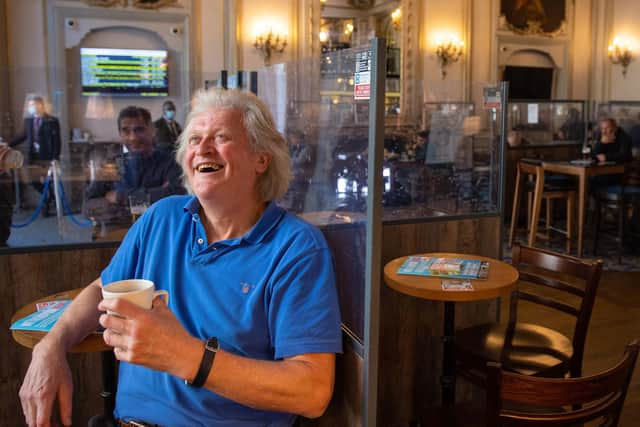Wetherspoon pubs sell-offs another example of how Brexit promises hung voters out to dry - Jayne Dowle
The Silkstone Inn, on Market Street, which stands in a building that was previously part of the Barnsley British Co-operative Society – a community-focused retail colossus which once dominated this part of town, selling everything from food to footwear – is set to close in its current guise as part of the pub chain selling 32 sites across the country in the face of £30m losses owing to rising staff wages and repairs.
It’s the only Wetherspoons pub in South Yorkshire to face the axe, although the Percy Shaw in Halifax is also on the market. You might think, “So what? Another day, another pub closure”. Trade magazine The Morning Advertiser reports that at least 37 per month in England and Wales were demolished or converted to other uses in 2021.
Advertisement
Hide AdAdvertisement
Hide AdHowever, the decision to effectively call last orders on the Silkstone Inn has wider repercussions than job losses and the disappointment of those who called it their “regular”.


Anecdotal evidence suggests that the traditionally-styled pub, named in honour of the Silkstone Seam which turned the Barnsley coalfield into a goldmine from the 1850s onwards, was a favourite haunt for older customers, and for those who preferred a quiet pint or a coffee against fancy cocktails and tapas sharing plates.
It's interesting that this Barnsley boozer has been singled out in Yorkshire and the North-East; most of the 32 are in London and the south of England.
Whilst there is another Wetherspoons pub within walking distance, the Joseph Bramah on Market Hill, I’d long assumed that the town centre could sustain two, if not just because the prices are always cheap and the food generally good value and hearty.
Advertisement
Hide AdAdvertisement
Hide AdWhat does it tell us about our town centre, and wider cultural shifts? That in the push for regeneration and modernity, there is limited home for the more traditional style of pub?
Whilst most of us are welcoming the new cocktail bars and real ale brew-pubs which have sprung up since the £200m-plus new Glassworks development transformed the town centre, others – especially older residents – are feeling left behind.
This sense of “we don’t matter” is a feeling shared in other Yorkshire towns, as major retailers withdraw and rents and running costs, including the price of energy, are putting smaller businesses and cafes in ever-increasing jeopardy.
It’s hardly a sign of confidence when a Wetherspoons has to call time, but even more so when Marks & Spencer – as is also the case in Barnsley – decides to withdraw from the High Street to set up shop on a retail park not served easily by public transport. My mother, for one, although she has access to a car, feels uncomfortable about the upheaval. There will be many other ladies of a certain age like her, who could probably find their way around the store blindfold, also feeling bereft.
Advertisement
Hide AdAdvertisement
Hide AdA thriving town centre should surely cater for all-comers. Yet as I travel around our region I can’t help but notice that some locations, Ilkley, for example, seem capable of pulling off the trick of appealing to all demographic age groups, whilst others are sliding ever further into tumbleweed towns.
I know one pub closure doesn’t make a social policy statement, but it strikes me that less well-endowed places, Barnsley included, are standing ever further across the divide from those in more affluent areas.
It is an ironic sign of the times, especially when you consider that Tim Martin, the founder and chairman of JD Wetherspoon, was such an ardent supporter of Brexit, donating a reported £200,000 to the Vote Leave Campaign. Whatever happened to the post-Brexit bright new future?
Closing a pub in a town which agreed overwhelmingly with Martin’s own views – on an EU referendum turnout of 70 per cent, far higher than for any general or local election, 83,958 residents voted for Brexit, against 38,951 in favour of Remain – it feels like something of a major kick in the teeth.
Advertisement
Hide AdAdvertisement
Hide AdOf course, it’s not up to business-owners to consider or represent the interests of their patrons, but it seems to me yet another example of how the British people were hung out to dry by those with the money and power to influence their voting behaviour at the referendum.
As a local history nerd, I’ve turned to the past in search of comfort. Before the Silkstone Inn site was taken over by the Co-op in the late 19th century, when Barnsley was booming thanks to the coal industry, it had been home to another pub, the Half Moon Inn.
And so the circle of history turns, and who knows what will happen next? What I do know is that when the pubs start closing in a town centre like ours, the glass is certainly half-empty.